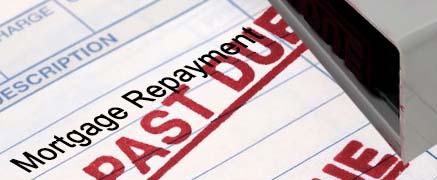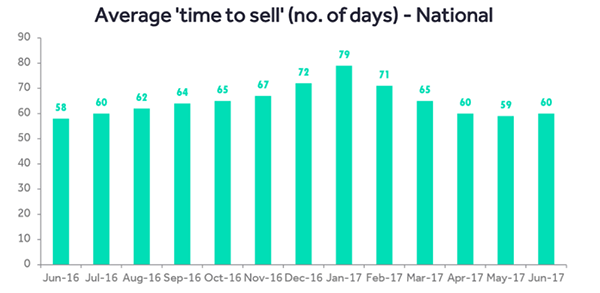 WARNING: DO NOT LET YOUR HOUSE GET REPOSSESSED AS IT MIGHT GET SOLD AT A TRADITIONAL AUCTION FOR A LOW SALES PRICE. THE HIGHER THE SALE PRICE, THE MORE MONEY YOU WILL RECEIVE WHEN ALL YOUR DEBTS ARE PAID FROM THE SALE. IF YOUR HOUSE SELLS FOR LESS THAN THE LOANS AGAINST IT, YOU MIGHT HAVE TO PAY THE REST BY SELLING OTHER ASSETS.
WARNING: DO NOT LET YOUR HOUSE GET REPOSSESSED AS IT MIGHT GET SOLD AT A TRADITIONAL AUCTION FOR A LOW SALES PRICE. THE HIGHER THE SALE PRICE, THE MORE MONEY YOU WILL RECEIVE WHEN ALL YOUR DEBTS ARE PAID FROM THE SALE. IF YOUR HOUSE SELLS FOR LESS THAN THE LOANS AGAINST IT, YOU MIGHT HAVE TO PAY THE REST BY SELLING OTHER ASSETS.

In A Nutshell
We can organise a cash advance to pay off your debts so you can sell your property using our modern auctions so that you get a better price for your home AND a cash advance so that you are able to pay move into rented accommodation on your own terms.
Note: Not all auctions are the same! See why ours are best.
Home repossession is the same process as ‘mortgage possession’ – it is a process lenders go through to recover money owed to them if the terms of repayment are broken by the borrower (debtor).
When a house is sold in the repossession process, any money that exceeds the mortgage loan or any other loan secured on the property or the court costs and fees is returned to the subject of the repossession order (the person whose home is sold).
Who Can Repossess Your Home
Your home can be repossessed by your mortgage lender if you fail to make the scheduled mortgage repayments agreed in the loan agreement.
Your home can also be repossessed by a lender of other loans if you have used your house or any equity tied into your house value to secure the loan.
The Repossession Process
Any lender attempting to repossess your property must go through a series of communication procedures in a timescale to ensure you have opportunity to try to come to sort of alternative repayment arrangement.
If you do not respond to the communications in a timely manner, the lender can apply to court to get an eviction order so that they can sell your house.
Independent Help & Advice To Avoid Repossession
There are a number of independent authorities providing a great selection of impartial advice about what you can do if you cannot meet your mortgage repayments, or if you are threatened with eviction and/or a repossession order. The information routinely includes detailed descriptions of the procedures lenders must follow and the court processes and the options the debtors can sometimes take to deal with a temporary inability to pay the loan.
Options to prevent repossession can include government help, extending the mortgage term, asking for a payment holiday, switching to interest-only repayment, reducing other outgoings and increasing income (e.g. renting out a room if circumstances and space permit it) or a combination of actions.
As not all options are listed in every advisory, it can pay to read a selection of articles. A small selection of information providers include:
- Money Saving Expert – http://www.moneysavingexpert.com/mortgages/mortgage-arrears-help
- The UK Government – https://www.gov.uk/repossession
- Shelter – https://england.shelter.org.uk/housing_advice/repossession
- Citizens Advice – https://www.citizensadvice.org.uk/resources-and-tools/search-navigation-tools/Search/?q=repossession
The most common advice seen throughout information about facing difficulty making mortgage repayments is DO NOT IGNORE THE PROBLEM BY DOING NOTHING.
Phone us on 0800 612 8659 to discuss ways that we can help you avoid a repossession order or send us your details using our contact form 24/7 and we will phone you back ASAP in office hours (or at a time to suit you).
Consider Selling Your House Yourself BEFORE a Repossession Order is Made
Most lenders do not want to repossess anyone’s home and they are obliged by law to try to work out an alternative agreement. They are however entitled to make sure the money they loaned is paid back and if they can demonstrate a lack of any plausible option or reluctance on the debtor’s part to negotiate an alternative repayment schedule and that selling the house is the only option available to them to get back all or part of the loan, a judge may give them the legal authority to evict anyone living there so that they can repossess the house and sell it.
Although they are legally obliged to accept the highest offer for the property, they are unlikely to prepare the property for the best impression or to ensure they choose the best option to sell the property. Many repossessed properties sold at local auctions are snapped up by property developers at a very low price simply because they are not widely advertised, frequently held at inconvenient times for people in full time employment and the properties are not ‘dressed’ for best presentation.
It is in the mortgage holders’ interest to get the price possible for their home and to avoid the court costs and solicitor fees associated with repossession orders because any money surplus to the loan, fees and costs will be returned to the debtors. If a property has grown in value through rising house prices a debtor could receive a significant amount of money once all debts have been paid IF THE PROPERTY IS SOLD FOR THE BEST PRICE POSSIBLE.
Added to that, if the property is sold for less than the loan or the amount does not cover the added fees and costs, the debtor is liable for the difference.
To get the best price possible, if repossession is inevitable, you may want to consider selling it yourself to pay off your debts. A mortgage lender may agree to a reduced repayment for a limited time to enable you to sell your house yourself but be aware the average time to sell UK residential property between June 2016 – June2017 is 70 days according to RightMove House Price index (see http://www.rightmove.co.uk/news/house-price-index/) and completions can take a further 70 days if an onward chain is involved.
Added to that appx 30% of all house sales fell through in 2016 according to Which Magazine (see http://www.which.co.uk/news/2016/06/three-in-10-property-purchases-fall-through-442589/)

National Residential routinely sells houses in 28 days for the best price possible and due to our rigorous buyer approval processes 95% of all sales complete. We advertise property locally and nationally to ensure the biggest buyer catchment area and we use technology to ensure competition is as open as possible (people can bid at a time suited to their working hours etc).
Phone us on 0800 612 8659 to discuss ways that we can help you avoid a repossession order or send us your details using our contact form 24/7 and we will phone you back ASAP in office hours (or at a time to suit you).
Consider Selling Your House Yourself AFTER a Repossession Order is Made
If a mortgage lender has already started proceedings to try to repossess your home or even if a judge has granted a them the authority to evict you and repossess your home, do not despair WE CAN STILL HELP YOU.
In these circumstances (once an application has been made to a court), speed and definite timescales are essential to the negotiations. We can even talk to your creditors to delay or halt proceedings based on a guaranteed sale.
Depending on the stage of the proceedings, we have two more fast sales options that might interest you:
- We can buy your property directly and transfer the funds to your lenders within 7 days of the sale.
This is the FASTEST way to sell your house.
OR
- We can agree a fixed sale price and as soon as we find a buyer we can release a cash advance to pay off your debt until the sale completes which is usually within 28 days because everything is handled through our in-house team.
If your creditors are willing to afford you a slightly bigger timescale to pay your debts, this option is less risky for us and so usually generates a better price for your property.
There are ZERO fees or costs associated to either these two options.
Phone us now on 0800 612 8659 to discuss any of our options with absolutely no obligation to proceed and in the security of NO SALE, NO FEE for any option. Alternatively, contact us using our call back form 24/7 and we will phone you back ASAP in office hours.

 The Online National Residential Agency: Best Price Possible & Quickest Sale - guaranteed
The Online National Residential Agency: Best Price Possible & Quickest Sale - guaranteed



